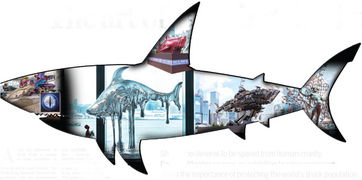In the serene world of angling, where the line meets the water and patience pays off, there is a wealth of knowledge to be gained. Whether you are a seasoned fisherman or a beginner eager to cast your line, mastering the art of fishing requires a blend of technique, experience, and a willingness to learn from both successes and setbacks. This article delves into the essential tips for successful fishing, the valuable lessons learned from experience, and how to effectively write about your fishing adventures.
Essential Fishing Techniques
The foundation of successful fishing lies in mastering the basics. Here are some essential techniques to get you started:
-
Choosing the Right Gear: The right equipment can make a significant difference. Select a rod and reel that match the type of fishing you plan to do, and make sure they are in good working order. For beginners, a spinning rod and reel is often a good choice due to its ease of use.

-
Learning the Bait: Different fish species are attracted to different baits. Research the species you're targeting and learn about the types of lures, live bait, or artificial baits that are most effective. For instance, bass are often caught on artificial lures like crankbaits or spinnerbaits, while catfish might be more attracted to live bait like nightcrawlers.
-
Reading the Water: Understanding water currents, depth, and structure is crucial. Fish often congregate around areas with structure, such as rocks, logs, or vegetation. Use a depth finder to determine the water's depth and keep an eye out for underwater features.
-
Mastering the Cast: A well-executed cast is key to successful fishing. Practice casting techniques until you can cast accurately and cover more water without snagging. The type of cast you use will depend on the distance and conditions you're facing.
-
Tying Knots: Learning to tie various knots is essential for securing your line to hooks, lures, and leaders. The improved clinch knot, the Palomar knot, and the Uni knot are some of the most common and reliable.
Valuable Lessons from Experience
Every fishing trip offers lessons, some of which can be hard-won. Here are some valuable lessons to keep in mind:
-
Weather Awareness: Pay attention to weather forecasts and conditions. Stormy weather can spook fish, and high winds can make casting difficult. Plan your trips around calm days with good visibility.
-
Patience is Key: Fishing is a waiting game. Don't get discouraged if you don't catch anything right away. Fish can be unpredictable, and sometimes it takes time to find them.
-
Respect the Environment: Always follow local fishing regulations and be mindful of the environment. Release fish carefully to ensure their survival, and practice catch-and-release if possible.
-
Learning from Mistakes: Every mistake is an opportunity to learn. If you catch a fish on the wrong hook or lose a lure, take note of what happened and adjust your technique accordingly.
-
Safety First: Always fish with a buddy, especially if you're new to the sport. Carry a first aid kit, wear a life jacket if you're in deep water, and be aware of your surroundings.
Writing Your Fishing Experience
After each fishing trip, you might want to document your experience. Here's how to write about your fishing adventures:
-
Start with the Basics: Begin with the date, location, and weather conditions. This sets the stage for your story.
-
Describe the Experience: Use vivid language to describe the scenery, the sounds of the water, and the anticipation of catching a fish.
-
Include Your Techniques: Detail the techniques you used, what worked, and what didn't. This can help others learn from your experience.
-
Reflect on the Lessons Learned: Share the lessons you took away from the trip, whether they were about fishing techniques or personal growth.
-
End with a Summary: Conclude with your overall feelings about the trip and what you're looking forward to in your next fishing adventure.
In conclusion, fishing is a rewarding hobby that requires a combination of skill, experience, and reflection. By mastering the essential techniques, learning from your experiences, and effectively communicating your fishing adventures through writing, you can enhance your enjoyment of the sport and share your knowledge with others. Happy fishing!












